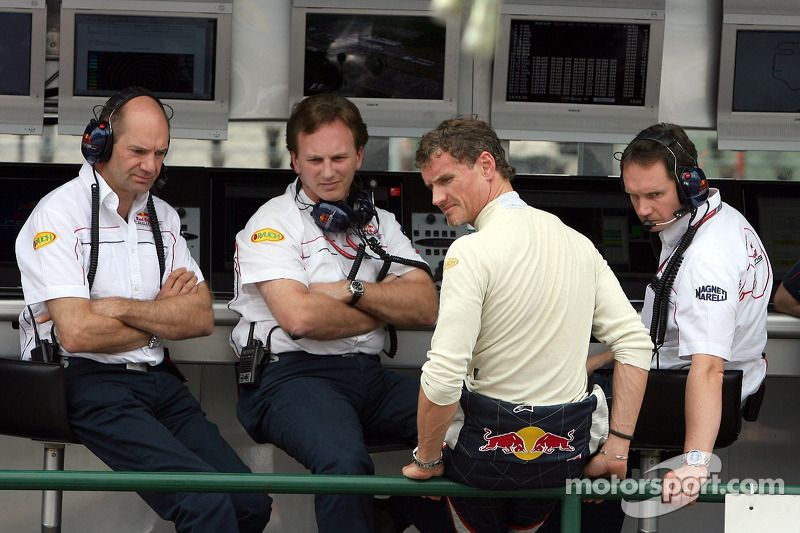Newey, who celebrates his 65th birthday on Boxing Day, has been credited as being an essential part of turning Red Bull into a championship-winning machine upon his arrival in 2006.
He initially made a name in F1 with his first technical director role at Leyton House before moving to Williams and then McLaren, designing cars that won a combined six constructors’ and six drivers’ titles.
Red Bull team boss Christian Horner then prized him away from McLaren, with Red Bull’s Newey-led car designs stealing a march on the field in the blown diffuser era between 2010 and 2013, and again since the introduction of the 2022 ground-effect cars.
But while Newey has much been less involved in the daily design work than previously, having free rein to pursue other projects, he continues to be a key asset and says he has no intention of leaving F1 just yet after signing a fresh deal earlier this year.
“Absolutely,” he replied when asked by Autosport if he still enjoys being part of Red Bull.
“When I joined Williams and McLaren, then they were two great teams that had won races and championships way before I ever arrived, so there was very little required on the infrastructure side, it was really just hopefully just trying to bring a bit on the design side.
“Whereas, and that’s really why I joined Red Bull, it was a bit of a career risk at the time, but I just wanted that sort of involvement again of being involved with the development of the team right at the start.
Photo by: Red Bull GmbH and GEPA pictures GmbH
Newey on the pitwall in 2006, his first season with Red Bull
“In that sense, having been involved in the start with Christian and Helmut [Marko], how we developed the team, then why would I want to walk away from that?”
Newey says the 2014 season, when Mercedes became the dominant force with its new turbo hybrid engines while Red Bull was stuck with uncompetitive power units from Renault, was the only point he considered walking away.
The only time it came close was in 2014 and that was for completely different reasonings,” he explained. “Very simply, at that time, we had a power unit which wasn’t performing, which happens of course.
“And there didn’t seem to be a huge desire from the manufacturer at the very top level – not from the guys [in the factory], but from the very top level to put the investment in to turn that around.
“So, you’re then in a bit of a depressing position…
Click Here to Read the Full Original Article at Autosport.com – Formula 1 – Stories…

